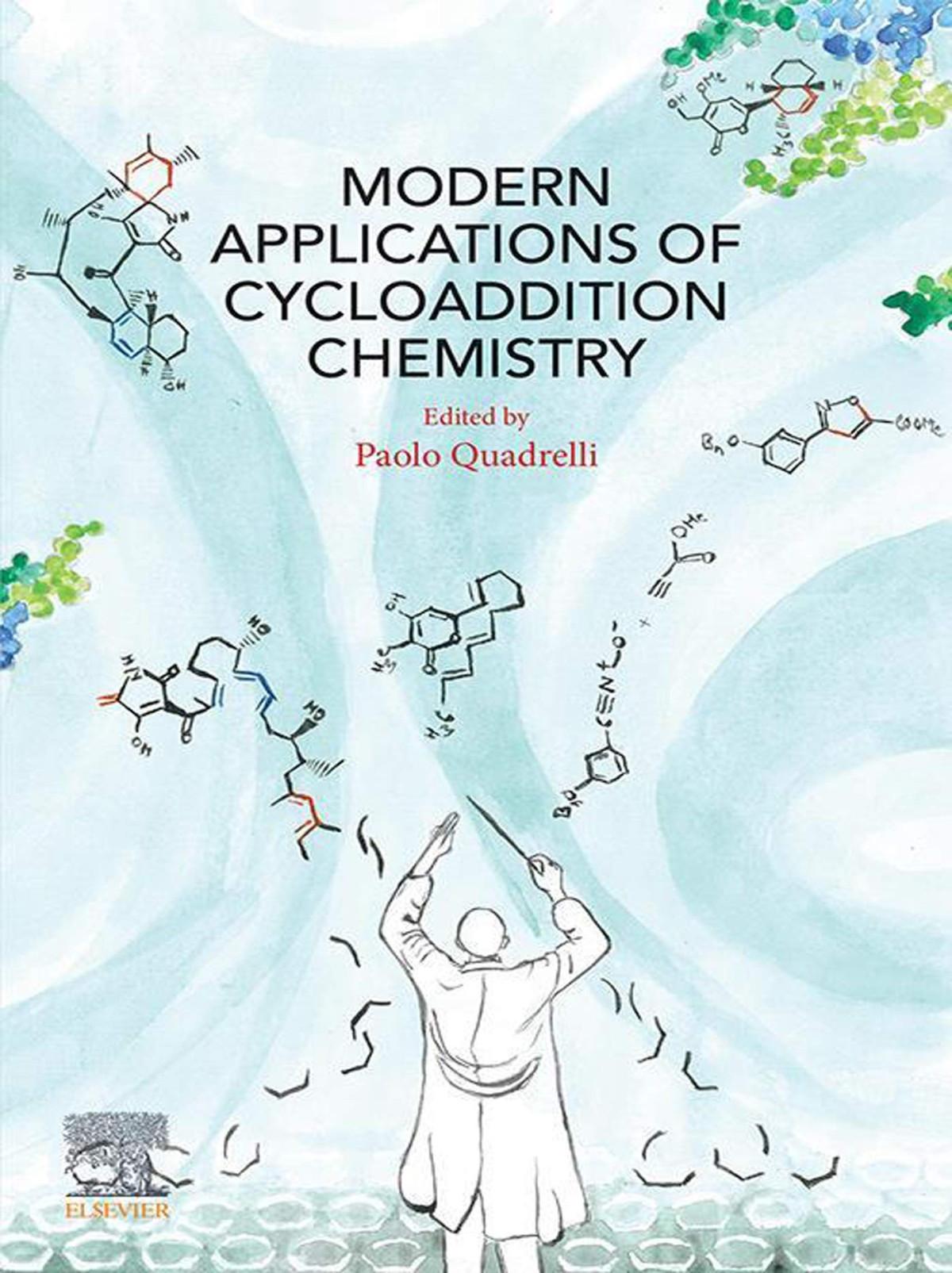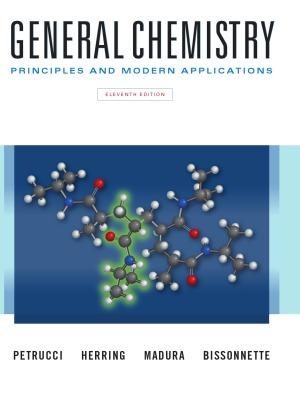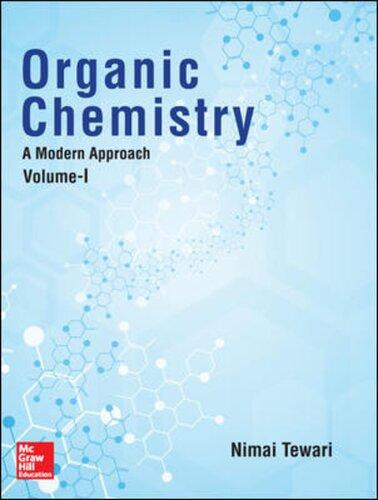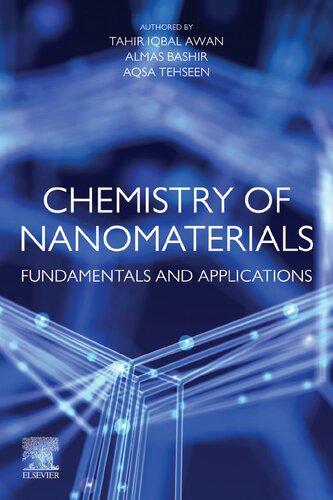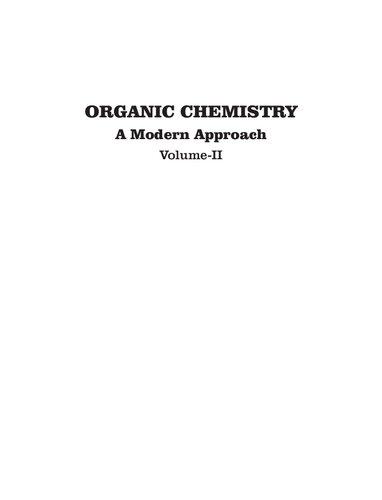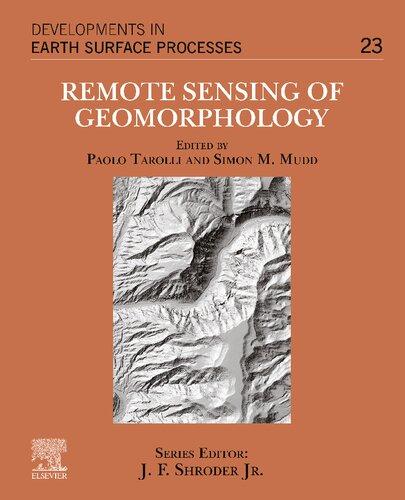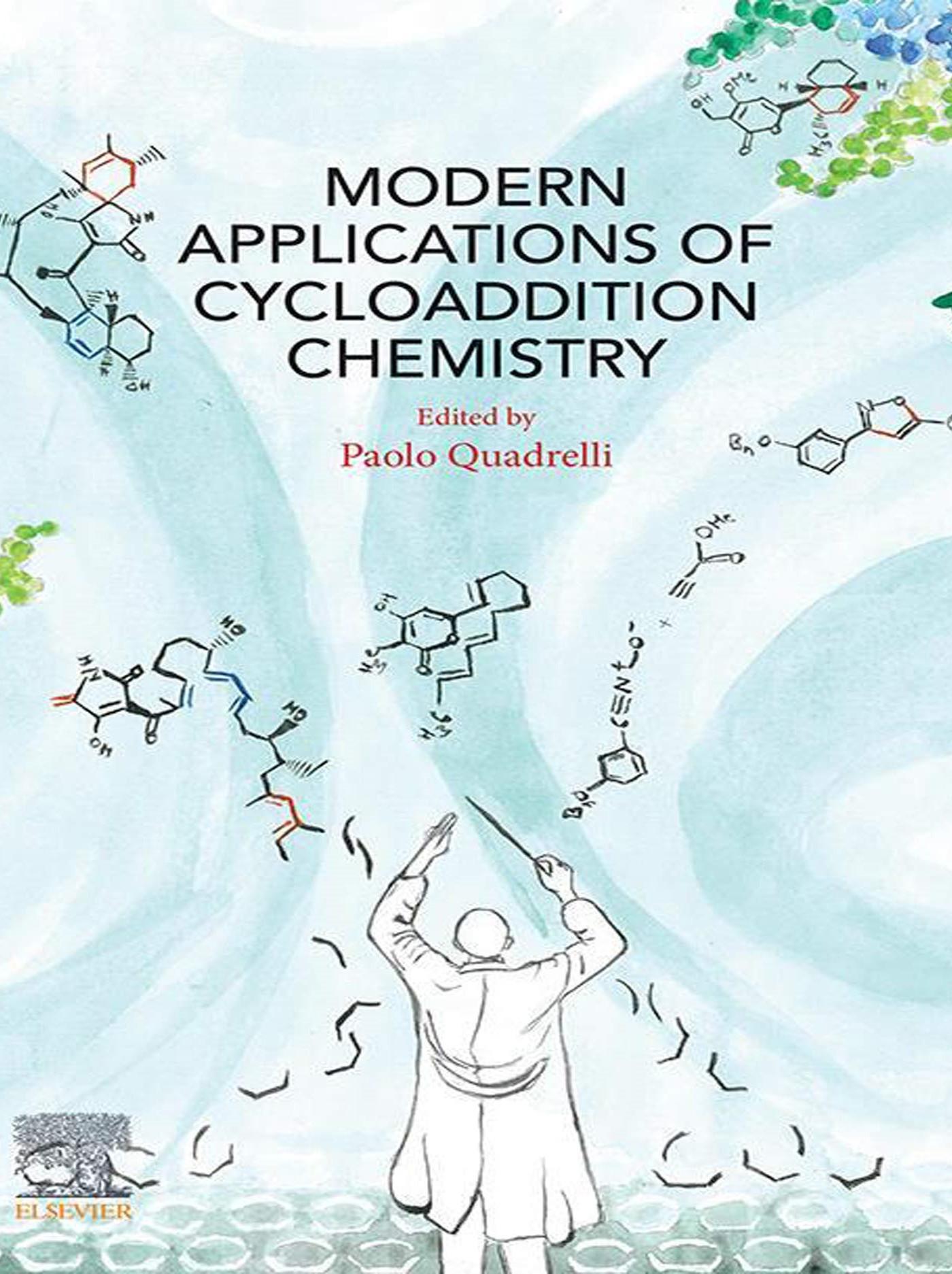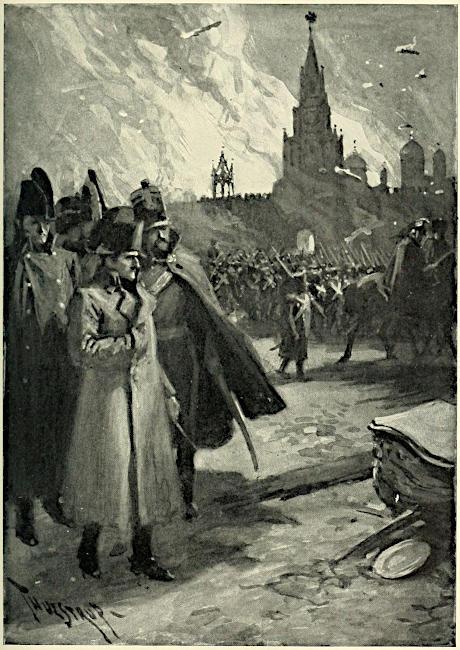Cycloadditionreactionsfor antiviralcompounds
PaoloQuadrelliandMattiaMoiola DepartmentofChemistry,UniversityofPavia,Pavia,Italy
Cycloaddition:generalaspects
Cycloadditionreactions,whoseapplicationsarethemaintopicofthepresent bookandwhichwereclassicallyclassifiedwithinthegroupofpericyclic reactions,havebeenexhaustivelystudiedbymanyresearchgroupsduring thelast50years.Theseinvestigationshavebeenpursuedbothonthebasis ofexperimentalresearchandupontheoreticalmethodologiesbasedonab initiocalculations.1 Theevolutionoftheoryandtheuseofincreasinglypowerfulcomputersandsoftwareincreasedtheleveloftheoryappliedtomore complexmolecularsystems.Theelectrondensityanalysis,asproposedby Domingo’sMolecularElectronDensitytheory,2 promisestogointodeepof cycloadditionreactionmechanisms,andthemethodsseemtooffernovel opportunitieswithrespecttothestudiesbasedonsimplemolecularorbital (MO)interactions,aswellasontheFrontierMO(FMO)theory,typically employedinthelastcentury.Newtheoreticalinvestigations,basedonaccurateexperimentalstudies,builtnew,solid,reactivitymodelsfortheserelevanttypesoforganicreactionsthatallowaprofoundrationalization;thenew findingsimplystrongandsignificantrepercussionsoncycloadditionreactionsandapplicationsinmodernorganicchemistryandsynthesis,specifically.Thematterisquitecomplex,andmoreandmorediscussionswill appearinliteratureinthenextyearsasthelevelofcomplexityofthetheoreticalinvestigationincreaseswiththedevelopmentofnewcomputational clusters.
Thecomplexmatterregardingmechanismsandpotentialsyntheticapplicationsofcycloadditionreactionshasbeenandisstillconstantlydiscussed inliteratureasthelevelofcomplexityoftheoreticalinvestigationsandsolutiondemandsincreases.Thesynthesisofmoleculeswithhighlevelofcomplexityandincreasingimportance,mainlyinthemedicinalchemistryfield, placesthetopicofcycloadditioninfrontofthedichotomy:tobeusefuland
participateinthepivotalstepofasynthesisortoberelegatedtoasimple chemicalcuriosity,notapplicabletosolvetremendousneedsinmodern organicchemistry.Severalbooksandreviews3 havebeenpublishedfromthe late1960stonowadaysdealingwithgeneralandmorespecificaspectsof cycloadditionchemistry.
Cycloadditionreactionsareamaturetopicoforganicchemistrybutabundantlyusedindifferentareaswherechemistryrepresentsthepivotalstepfor reachingthedesiredtarget.Booksdedicatedtocycloadditionreactionsdeal typicallywiththesynthesisofheterocycles,generalorganicsynthesisapplications,specificapplicationsinnaturalproductsynthesis,ortheydescribe theuseofaclassoforganiccompoundsaspartnersincycloadditionreactions.3 In2016,abookappearedintheTopicinCurrentChemistry CollectionsdealingwiththebioorthogonalchemistryeditedbyVrabeland Carrell.Thisrepresentsafirstexampleofabookdedicatedtotheviewof cycloadditionsinmodernorganicchemistry.However,othersubjectsstill demandageneralreviewsinceinrecentyearspericyclicreactionswere extensivelyappliedtodifferentchemistryareassuchaschemicalbiology, biologicalprocesses,catalyzedcycloadditionreactions,deliveryofantiviral oranticancerdrugs,targetingofbiologicalactivemolecules,materialchemistrywithapplicationsinmedicine,photovoltaicprocesses,photochemistry, energyharvesting,andsoon.Noneofthesetopics,wherecycloaddition reactionsspreadout,hasreceivedaunifyingoverviewinasinglebookthat couldofferasolidbackgroundforfuturedevelopmentintheseandother subjects.Moreover,thechronologicalstructureofthereferencesregardinga generaltopicallowsthereadertorecognizetherelevanceofspecificsubjects duringthepastdecadesandtheevolutionofthesynthesiswithrespectto specificactivecompounds.Thisbookaimstofillthegap,sheddinganew lightoverpericyclicreactionsanddemonstratinghowthesevaluabletools mayelegantlysolvesyntheticandmechanisticproblemsinmodernorganic chemistry.
TheDiels Alder(DA)reactionsareoneofthegeneralclassesof cycloadditions,whichincludealsoheteroDA(HDA)reactions,[2 1 2] cycloadditions,and1,3-dipolarcycloadditionreactions(Fig.1.1).
Withinthisframe,boththeinter-andintramolecularversionsofthese reactionsarewidelyusedinorganicsynthesis.Inmanycases,thesereactions occuratroomtemperature,butharsherreactionconditionsaresometimes requiredtogetthefinalcompounds.Moreover,theuseofcatalystshasbeen increasinglydevelopednotonlyinthewaytoacceleratethereactionsbut mainlytoensureenantioselectiveanddiasteroselectiveprocesses.
MostDAreactionsinvolveadienebearingelectron-donatingsubstituents andanelectron-poordienophile.However,DAexistsalsointheinverse electrondemandversionwherethesubstituentslocatedondieneanddienophiledisplayreversedelectronicpropertieswithrespecttotheclassicalDA
Cycloadditionreactionsforantiviralcompounds
Diels–Alder [4+2]cycloaddition reaction
[2+2]Cycloaddition reaction
[3+2]1,3-dipolar cycloadditionreaction
FIGURE1.1 Generalschemesfor[4 1 2],[2 1 2],and[3 1 2]cycloadditionreactions.
reaction.ThetwocycloaddendsmusthavecomplementaryelectroniccharactertoensuretheusefulnessoftheDAcycloadditionreactions(Fig.1.2).
ThemonumentalworkofRolfHuisgenetal.inthe1960sledtothegeneralconceptof1,3-dipolarcycloadditionreactions.Theseextremelyvaluable synthetictoolspermitthepreparationofmoleculesofhighercomplexity thanthereactants.Fewreactionsrivaltheseprocessesinsyntheticutility, mainlyinthefieldofheterocyclicchemistry.Five-memberedheterocycles arethesynthetictargetofthesereactionsandtheirabilitytoproduceheterocyclesextendstheimportanceofthe1,3-dipolarcycloadditiontootherareas oforganicchemistry,notstrictlyrelatedtotheringformationprocesses. Moreover,theintroductionofnewchiralcatalystsallowedforthecontrolof newstereocentersderivedfromthecycloadditionreactionswiththevaluable stereochemicaloutcomebornebythenewlysynthesizedmolecules.Ifthese moleculesaredrugs,thisisakeypointfordeterminingthesuccessofasyntheticapproach.
Mechanisms,reactivities,andselectivitiesofthesereactionshavebeen completelyrationalizedaccordingtomoderntheoreticalinvestigations.
FIGURE1.2 FMOrelativeenergies.(A)Die nophilewithlow-energyLUMO; (B)diene 1 dienophile;(C)dienophilewithhigh-energyHOMO. FMO,Frontiermolecularorbital.
However,thetraditionalreferencestotheseconceptswillstillbeusedto illustratebasicideasthatareinthebackgroundofthesubjectstreatedinthis book.Figuresandschemeswillfocusreaderattentiononthepivotalstepsof thesyntheseshighlightingtheroleofcycloadditionreactioninachievingthe bestresultsbothintermsofchemicalyieldsandselectivitiesandintermsof biologicalactivities.
Cycloadditionforantiviralcompounds
Thevirus
Thesmallestandsimplestbiologicalstructure,calledavirus(fromLatin: poison),lacksanytypeofcellularorganizationandisforcedtolivewithin cells,beingintracellularparasites.Viralinfectionsdeeplymarkedhumanhistory,astheSpanishconquestofSouthAmericanterritoriesshowedinaparadigmaticpictureofdeath.Thedevelopmentofnewandpowerfuldiagnostic methodologiesallowedforanincreasingcapacitytoidentifynewviruses. Fromthe1960sforward,newfrighteninghemorrhagicAfricanfeverswere discoveredandattributedtothefiloviruses,whiletheAIDSappearedin 1981,althoughHIVwasalreadypresentinthehumanpopulationinthe 1930s.
Anotheremergencyisthereappearanceofviralinfectionsduetovirus mutationsandresistancetoantiviraltherapies.Thisisthecaseoftheinfluenzaviruses;thevirussurfaceproteinshavechangedandarenotrecognizablebythehumanimmunesystemanylonger.Sometimesthevirusgenoma
canbeexchangedfromhumanstoanimalsandbacktohumans,determining newpandemicsituationsandsocialalarms.Viralinfectionsarequitedetrimentalsince,contrarytobacteria,virusescannotbedefeatedwithantibiotics.Untilveryrecently,asmallnumberofantiviralcompoundscouldbe usedinthepharmacologicaltreatmentofthesediseases.Luckily,notonly arevirusesinprogress,soarechemicalresearchandsyntheticapproachesto newandpowerfulmethodsforthecontrasttoviralinfections.Thedemand ofantiviralcompoundsisconstantlyincreasingandchemistryisconstantly underexaminationtofurnishnovelstrategiesforalarge-scalepreparationof activemolecules.4
Diels AlderandheteroDiels Alderreactionsandtheantivirals
TostartdiscussingtheapplicationofDAcycloadditiontothesynthesisof value-addedmolecules,itisworthcitingthecaseoftheinfluenzaviruses andspecificallytheH1N1virusandhowneuraminidase(NA)inhibitorscan bepreparedwithdifferentsyntheticapproaches,havingincommonthepivotalsteprepresentedbytheDAcycloadditionreaction.Theresearchsubject offersalsoabrilliantexampleofjointeffortsfromacademiaandpharmaceuticalindustries.Theinfluenzainfectionisknowntobeaserioushealthconcern,andthecauseofmorbidityandmortalityinmanycountries.Current optionsforitstreatmentandpreventionsometimeshaveseverelimitations, underscoringtheneedfornew,effectiveantiinfluenzaagents.InfluenzaNA isoneofthetwomajorsurfaceglycoproteinsexpressedbyinfluenzaviruses. NApromotesthecleavageoftheterminalsialicacidresiduesattachedto glycoproteinsandglycolipids.5 Therefore,NArepresentsapotentialtarget fordevelopingantiinfluenzaagents.Infact,in1999amergedresearchgroup byGileadSciencesInc.andRocheDiscoveryproposedthesynthesisofa 1,4,5,6-tetrahydropyridazinederivativeanditsC-5epimer,whichpossess sidechainssimilartocompound GS4071.ThesecompoundsweresynthesizedviaHDAreaction,andevaluatedasinfluenzaNAinhibitors.Bothcompoundsexhibiteda μMrangeofinfluenzaNAinhibitoryactivity.6 The strategyfollowedisbasedonanHDAcycloadditionreactionbetweenthe hydrazone 3 andalkene 4 inthepresenceofsodiumcarbonateinacetonitrile toafforda1:3mixtureofthedesiredcycloadduct 5 anditsregioisomerin 87%yield(Scheme1.1).
AfterremovaloftheBocgroupon 5 andsaponification,theaminocompound 6 couldbeeasilyseparatedfromitsregioisomerbysimplechromatography.TheinfluenzaNAinhibitoryactivityofcompound 6 isreportedin Scheme1.1.Compound 6,havingasimilarsidechainandstereochemistry (trans)to GS4071,exhibitedIC50 of6 μMagainstinfluenzaAand62 μM againstinfluenzaB.Increasedactivitywasresultedfromconvertingthe aminogroupof 6 intotheguanidinefunctionality.TherelativelyweakNA inhibitoryactivityof 6 comparedtothatof GS4071 canbeexplainedfrom
B 6 62
GS4071
(2R,4S)-5-acetamido-2,4-dihydroxy-6-((1R,2R)1,2,3-trihydroxypropyl)tetrahydro-2H-pyran-2-carboxylic acid Sialic Acid
HCl/AcOEt ii) KOH/MeOH,H 2O Dowex (H +)
SCHEME1.1 Syntheticstrategyfor(5S,6S)-6-acetamido-5-amino-1-(2-ethylbutanoyl)-1,4,5,6tetrahydropyridazine-3-carboxylicacid 6
conformationalandbindingstudies.Theseinvestigationsrevealedthatthe NH2 andNHAcgroupsof 6 occupythepseudo-axialpositions,ratherthan thenormallypreferredpseudo-equatorialpositionsthatareadoptedonbindingtoinfluenzaNA,indicatingthatanenergypenaltyisincurreduponthe binding.Inaddition,theX-raystructureof 6 boundtoNArevealsadifferent bindingmodeforthe3-pentylsidechainascomparedwiththatof GS4071. Inthecaseof GS4071,thetwoethylgroupsofthe3-pentylsidechainbind intwodifferentpockets.However,presumablyowingtothepartlyplanar natureoftheamidebond,the3-pentylsidechainof 6 poorlyfitsand exposesthehydrophobicgrouptowater.6
AfruitfulcollaborationbetweentheUniversityofManchesteranda researchgroupofabigchemicalcompany,GlaxoSmithKline,wasestablishedin2001forthesynthesisofnewinhibitorsofinfluenzavirussialidases.Structurallyrelatedcyclohexenederivatives,Zanamivir 7 and GS4071 (administeredinprodrugformasOseltamivir),areknowntointerferewith viralreplicationbyactingaspotentinhibitorsofvirussialidases.These enzymes,locatedontheviralsurface,cleavethe α-glycosidicbondof
terminalsialicacidresidues.Zanamivir 7 and GS4071 bindtotheactivesite ofasialidaseinananalogousmanner.Whereasthetrihydroxypropylside chainbindstoahydrophilicpocketviahydrogenbondinginteractions,the pentyloxyfunctionisaccommodatedinahydrophobicpocket.Theimportanceofthesubstituentstructureshasbeendemonstratedinseveralbinding studiesandstructuralmodificationbyreplacementofselectedsubstituents aimedtotuneproperlytheinhibitoryactivity.Forexample,thereplacement ofthetrihydroxypropylsidechainbyadialkylcarbamoylentityleadsto compoundsthatretainpotencyagainstinfluenzaAsialidasebutloseeffectivenessagainstinfluenzaBsialidase.Surprisingly,inthisseries,theguanidinofunctionappearstoplaynoroleinbindingtoinfluenzaAsialidase. AlsothelocationoftheCQCdoublebondseemstobecriticalandtheretrosyntheticanalysishastotakeintoaccountthegenerationofregioisomers. Thesynthesisoftwonovelcompounds,whoseinhibitionactivitywasevaluatedincomparisonwiththe GS4071,isbaseduponaDAtacticbetweenthe nitroacrylamide 8 andthediene 9 (Scheme1.2).7
OTBDMS O2N O N Et Et O2N O N Et Et OTBDMS (ratio,2:1)
i)Al(Hg),MeOH/H2O ii)Ac2O,Py
AcNH O N Et Et COOEt OH Ph2S[OC(CF3)2Ph]2, -78ºC
i)AcOH/H2O
OTBDMS AcNH O N Et Et
AcNH O N Et Et COOEt AcNH O N Et Et COOEt + (ratio,1:1.3) (24%) (70%)
AcNH O N Et Et COOH AcNH O N Et Et COOH + LiOH,MeOH-H2 O(9:1) 13b 13a 14b 14a
ii)CH2 = CH(OEt),t.BuLi, THF, -78ºC iii)O3, MeOH, -78ºC (40%) (68%) 11 12 (53%) IC50 (M) H1N1 AB 14a 14b 7 0.210150 0.01723 0.0050.004 O COOH HN AcNH OH 7 (Zanamivir)
SCHEME1.2 SyntheticstrategyforZanamivir-likecompounds 14a,b
Thereactionsaffordaseparable2:1mixtureoftheregioisomeric cycloadducts 10a,b in40%overallyield.Thesynthesisproceedsbyusing justtheregioisomer 10a thatwasreducedbyAl(Hg)andacetylatedtogive 11,subsequentlytransformedinthreestepsintothe α-hydroxyester 12 in 53%yieldasamixtureofdiastereoisomers(ratio3:1).Martin’ssulfurane dehydrationreactionprovideda1:1.3mixtureofcompounds 14a and 14b (68%yieldafterchromatography).Finally,hydrolysisoftheester 13a [LiOH,MeOH H2O(9:1),2h]wasuneventful,leadingtothedesiredacid 14a in70%yield.Undersimilarconditions,theester 13b affordeda4:2:2:1 mixtureofproducts;themostprevalentcomponent[isolatedinanear-pure stateasasyrup(24%yield)byadditionofEtOActothemixtureanddecantationoftheliquid]wasidentifiedastherequiredacid 14b.
Theinhibitoryactivitiesoftheacids 14a,b,comparedwithZanamivir 7, againstinfluenzaAandBsialidasesareshownin Scheme1.2 intheinset. BothcompoundsarehighlyselectiveforinfluenzaAsialidasebyafactorof over700for 14a andover1300for 14b.AgainstinfluenzaAsialidase,the acid 14b isabout3timeslessactivethanZanamivir 7 whereastheacid 14a isabout40timeslessactive.Thesefindingsindicatethatthepresenceofa basicfunctionisnotarequirementforhighpotency.Theyalsorevealthat thepositionofthedoublebondcontributesto,butisnotcriticalforhigh activityagainstinfluenzaAsialidase.7
Thesameauthorsfurtherexploredthesubstituenteffectsaswellasthe potentialitiesofthesynthesizedcompoundsinracemicformsbypreparing thenitro-cyclohexene 17 byDAcycloadditionofthenitro-olefin 15aand thediene 16.Theproductwasobtainedingoodyields(56%)andsubmitted toasequenceofwell-establishedchemicalconversionstogetthefinalacids 18a,b inexcellentyields(Scheme1.3).8
Theinhibitoryactivitiesoftheacids 18a,b againstinfluenzaAandBsialidasesincomparisonwith GS4071 areshownin Scheme1.3.Onlycompound 18a showedanyappreciableactivity.Comparedwith GS4071,itwas 70timeslessactiveagainstinfluenzaAsialidaseand280timeslessactive
SCHEME1.3 [4 1 2]Cycloadditionreactionstrategyfor GS4071-likecompounds.
againstinfluenzaBsialidase.Theseresultsindicatethattheaminogroupof GS4071 contributestobutisnotobligatoryforhighpotency,althoughitis importantinbindingtothesialidase.Thepooractivityoftheacid 18b demonstratestheinadequacyofthe syn-arrangementofthepentoxyandacetylaminogroups,arelevantstructure activityrelationship(SAR)information forfuture-plannedsynthesesofpotentialactiveanalogs.Fromthesynthetic pointofview,theexcellent endo-stereoselectivityrealizedintheDAreactionsisattributabletothepresenceofthe O-acetylsubstituentinthe oxybuta-1,3-diene.Inconclusion,thesialidaseinhibitorypropertiesofthe acids 18a,b providenewinsightsintoSARofantiinfluenzaagents.
Therelevanceofthecontrasttoinfluenzapandemicisaworldwideconcern.Astoldbefore,pandemicisattributedtoamutationofinfluenzavirus proteinsthatallowsthevirustoevadethehumanimmunesystem.Asresult oftoday’sextensiveglobaltransport,alocalinfluenzaepidemiccannotbe restrictedtoaspecificarea.Becauseofthehighmutationfrequencyofinfluenzavirus,aneffectiveantiinfluenzadrugshouldtargetfundamentalmolecularprocessesthatareessentialandspecificforthelifecycleofthevirus. Thisprincipleisbasedonthehypothesisthatstructuresoffundamentalproteinsareconservedeveninmutantviruses,andNAbelongstothesevirus proteins.Aninfluenzavirionbuddingfromaninfectedcellbindstoaterminalsialicacidresidueonthehostcellsurfaceglycoproteinwithhemagglutinin(HA: Fig.1.3).NAhydrolyticallycleavestheglycosidicbondofsialic acidtoreleasethevirusfromthehostcellsurface.Thisprocessliberatesthe buddingvirionfromtheinfectedcellandisessentialforspreadingtheinfection.Asexpected,theactivesiteofNAishighlyconservedacrosstheinfluenzaAandBvirusstrains.Therefore,anNAinhibitorisaprimecandidate forbroadspectrumantiinfluenzadrugs.

FIGURE1.3 Schematicrepresentationofaninfluenzavirionbuddingfromahostcell. From: Shibasaki,M.;Kanai,M.Eur.J.Org.Chem. 2008,1839 1850. Cycloadditionreactionsforantiviralcompounds Chapter|1 9
Another random document with no related content on Scribd:
body of Russians, had wrested from the Turks the last fortresses they held in the principality.
The grand vizir asked for a suspension of arms, with a view to negotiating a peace; but the terms now demanded by the victorious Russians were such as the Porte would not accede to. The war was continued in 1811, but always to the disadvantage of the Turks. Resolved on a last desperate effort, they assembled a formidable army whilst the conference at Bucharest was still pending. At last, the rupture between France and Russia changed the aspect of affairs, and compelled the latter power to abandon the long-coveted prey when it was already in its grasp. The Russian minister, Italinski, contented himself with requiring that the Pruth should for the future form the boundary between the two empires. The sultan regarded even this concession as disgraceful; but the Russians carried their point by bribery, and the Treaty of Bucharest was concluded. Its chief provisions were these:
Article 4. The Pruth, from the point where it enters Moldavia to its confluence with the Danube, and thence the left bank of the latter to its embouchure on the Black Sea at Kilia, shall be the boundary between the two empires. Thus the Porte surrendered to Russia a third of Moldavia, with the fortresses of Khoczim and Bender, and all Bessarabia, with Ismail and Kilia. By the same article, the navigation of the Danube is common to the subjects of Russia and Turkey. The islands enclosed between the several arms of the river below Ismail are to remain waste. The rest of Moldavia and Wallachia are to be restored to the Turks in their actual condition. Article 6. The Asiatic frontier remains the same as it was before the war. Article 8 relates to the Servians, to whom the Porte grants an amnesty and some privileges, the interpretation of which offers a wide field for the exercise of diplomatic subtlety. Article 13. Russia accepts the mediation of the Porte for the conclusion of a peace with Persia, where hostilities had begun anew, at the instigation of the English ambassador.
WAR WITH NAPOLEON
Notwithstanding all the demonstrations to the contrary made since the Peace of Tilsit, England, Russia, Prussia, and also Austria partially, always continued to maintain a certain mutual understanding, which was, however, kept very secret, and somewhat resembled a conspiracy. The most distinguished statesmen both in Russia and Prussia felt how unnatural was an alliance between Napoleon, Alexander, and Frederick William III, and directed attention to the subject. This was also done on the part of England, and it is certain that the emperor Alexander, as early as the meeting in Erfurt in 1808, expressed his doubts respecting the duration of his alliance with France. The conduct of Russia in the campaign against Austria, in 1809, first shook Napoleon’s confidence in his ally. Mutual complaints and recriminations ensued; but neither party thought it advisable to give any prominence to their disunion, and Napoleon, even when he had entered, through Thugut, upon the subject of an Austrian marriage, still continued to carry on negotiations for an alliance with a Russian princess.
The enlargement of the territory of the duchy of Warsaw, extorted by Napoleon at the Peace of Schönbrunn, at length led to an exchange of diplomatic notes, which tended strongly to a war. The Poles naturally expected from Napoleon and his advisers that he would in some way give new life and currency to the name of Poland; against this the emperor of Russia earnestly protested. The whole of the diplomatic correspondence between Russia and France in the years 1810 and 1811 turns upon the use of the words Poles and Polish, although Russia had again obtained by the Peace of Schönbrunn a portion of Austrian Poland, as it had previously obtained a part of Prussian Poland by the Peace of Tilsit. Seeing that the whole of western Galicia, Zamoisk, and Cracow had been united to the duchy of Warsaw by the Peace of Schönbrunn, Russia called upon the emperor of the French to bind himself expressly by treaty not to revive the names of Pole and kingdom of Poland.
Before the end of 1809 many notes were exchanged concerning this point, apparently so insignificant, but in reality so important for the peace and safety of the Russian Empire. Napoleon agreed to
give the assurance so earnestly desired by Alexander, and Caulaincourt, the French ambassador in St. Petersburg, signed a regular concession of the Russian demand in January, 1810. By the first two articles of this agreement it was laid down that the word Poland, or Polish, was not to be used when any reference was made to the enlargement of the duchy of Warsaw. By the third article the two emperors bound themselves not to revive or renew any of the old Polish orders. In the fifth, the emperor of the French agreed not further to enlarge the duchy of Warsaw by the addition of provinces or cities belonging to the former state of Poland.
This agreement, signed by Caulaincourt, still required the confirmation of the emperor of the French: and Napoleon had given instructions to his ambassador only to agree to such an arrangement on condition that the agreement was drawn up in the usual diplomatic manner: that is to say, in employing words and phrases so chosen as to be capable of any subsequent interpretation which may best suit the parties. This was not done. The articles were very brief, the language so clear and definite as to be incapable of mistake or misrepresentation. Without directly refusing his sanction to the treaty, Napoleon required that it should be couched in different language, and caused a new draft of it to be presented in St. Petersburg. The Russians saw at once through his purpose, and Alexander expressed his displeasure in terms which plainly indicated to the French ambassador his belief that Napoleon was really meditating some hostile measures against him, and was only seeking to gain time by the treaty.
This occurred in February, 1810; in the following months both Romanzov and Caulaincourt took the greatest possible pains to bring the question to a favourable issue, and negotiations continued to be carried on respecting this subject till September. They could not agree; and after September there was no more talk of the treaty, much less of its alteration. The relation between the two emperors had undergone a complete change in the course of the year.
The cupidity of Russia, far from being glutted by the possession of Finland, great part of Prussian and Austrian Poland, Moldavia, and Bessarabia, still craved for more. Napoleon was, however, little inclined to concede Constantinople and the Mediterranean to his Russian ally (to whose empire he assigned the Danube as a boundary), or to put it in possession of the duchy of Warsaw. The Austrian marriage, which was effected in 1809, naturally led Russia to conclude that she would no longer be permitted to aggrandise herself at the expense of Austria, and Alexander, seeing that nothing more was to be gained by complaisance to France, consequently assumed a threatening posture, and condescended to listen to the complaints of his agricultural and mercantile subjects. No Russian vessel durst venture out to sea, and a Russian fleet had been seized by the British in the harbours of Lisbon. At Riga lay immense stores of grain in want of a foreign market. On the 31st of December, 1810, Alexander published a fresh tariff permitting the importation of colonial products under a neutral flag (several hundred English ships arrived under the American flag), and prohibiting the importation of French manufactured goods. Not many weeks previously, on the 13th of December, Napoleon had annexed Oldenberg to France. The duke, Peter, was nearly related to the emperor of Russia, and Napoleon, notwithstanding his declared readiness to grant a compensation, refused to allow it to consist of the grand-duchy of Warsaw, and proposed a duchy of Erfurt, as yet uncreated, which Russia scornfully rejected.
The alliance between Russia, Sweden, and England was now speedily concluded. Sweden, which had vainly demanded from Napoleon the possession of Norway and a large supply of money, assumed a tone of indignation, threw open her harbours to the British merchantmen, and so openly carried on a contraband trade in Pomerania, that Napoleon, in order to maintain the continental system, was constrained to garrison Swedish Pomerania and Rügen and to disarm the Swedish inhabitants. Bernadotte, upon this, ranged himself entirely on the side of his opponents, without, however, coming to
[1811-1812 A.D.]
an open rupture, for which he awaited a declaration on the part of Russia. The expressions made use of by Napoleon on the birth of the king of Rome at length filled up the measure of provocation. Intoxicated with success, he boasted, in an address to the mercantile classes, that he would, in despite of Russia, maintain the continental system, for he was lord over the whole of continental Europe; and that if Alexander had not concluded a treaty with him at Tilsit, he would have compelled him to do so at St. Petersburg. The pride of the haughty Russian was deeply wounded, and a rupture was nigh at hand.
Russia had, meanwhile, anticipated Napoleon in making preparations for war. As early as 1811, a great Russian army stood ready for the invasion of Poland, and might, as there were at that time but few French troops in Germany, easily have advanced as far as the Elbe. It remained, however, in a state of inactivity. Napoleon instantly prepared for war and fortified Dantzic. His continual proposals of peace, ever unsatisfactory to the ambition of the czar, remaining at length unanswered, he declared war.k
But, to get within reach of Russia, it was necessary for Napoleon to pass beyond Austria, to cross Prussia, and to conciliate Sweden and Turkey; an offensive alliance with these four powers was therefore indispensable. Austria was subject to the ascendency of Napoleon, and Prussia to his arms: to them, therefore, he had only to declare his intentions; Austria voluntarily and eagerly entered into his plans, and Prussia he easily prevailed on to join him.
Austria, however, did not act blindly. Situated between the two giant powers of the north and the west, she was not displeased to see them at war: she looked to their mutually weakening each other, and to the increase of her own strength by their exhaustion. On the 14th of March, 1812, she promised France thirty thousand men, but she prepared prudent secret instructions for them. She obtained a vague promise of an increase of territory as an indemnity for her share of the expenses of the war, and the possession of Galicia was guaranteed to her. She admitted, however, the future possibility of a
cession of part of that province to the kingdom of Poland, but in exchange for that she would have received the Illyrian Provinces. The sixth article of the secret treaty establishes this fact.
The success of the war, therefore, in no degree depended on the cession of Galicia, or the difficulties arising from the Austrian jealousy respecting that possession. Napoleon consequently might, on his entrance into Vilna, have publicly proclaimed the liberation of the whole of Poland, instead of betraying the expectations of her people, confounding and rendering them indifferent by expressions of doubtful import. This was one of those decisive issues which occur in politics as well as in war, and which determine the future. No consideration ought to have made Napoleon swerve from his purpose. But whether it was that he reckoned too much on the ascendency of his genius, or the strength of his army and the weakness of Alexander; or that, considering what he left behind him, he felt it too dangerous to carry on so distant a war slowly and methodically; or whether, as we shall presently be told by himself, he had doubts of the success of his undertaking, certain it is that he either neglected or could not yet venture to proclaim the liberation of that country whose freedom he had come to restore. Yet he had sent an ambassador to her diet; and when this inconsistency was remarked to him he replied that that nomination was an act of war, which only bound him during the war, while by his words he would be bound both in war and peace. Thus it was that he made no other answer to the enthusiasm of the Lithuanians than evasive expressions, at the very time he was following up his attack on Alexander to the very capital of his empire.
He even neglected to clear the southern Polish provinces of the feeble hostile armies which kept the patriotism of their inhabitants in check, and to secure, by strongly organising their insurrection, a solid basis of operation. Accustomed to short methods and to rapid attacks, he wished to do as he had done before, in spite of the difference of places and circumstances; for such is the weakness of man that he is always led by imitation, either of others or of himself, which in the latter case is habit, for habit is nothing more than the
imitation of one’s self. Accordingly, it is by their strongest side that great men are often undone!h
Napoleon Invades Russia(1812A.D.)
On the 24th of June, 1812, Napoleon crossed the Niemen, the Russian frontier, not far from Kovno. The season was already too far advanced. It may be that, deceived by the mildness of the winter of 1806 to 1807, he imagined it possible to protract the campaign without peril to himself until the winter months. No enemy appeared to oppose his progress. Barclay de Tolly, the Russian commander-inchief, pursued the system followed by the Scythians against Dairus, and perpetually retiring before the enemy gradually drew him deep into the dreary and deserted steppes. This plan originated with Scharnhorst, by whom General Lieven was advised not to hazard an engagement until the winter, and to turn a deaf ear to every proposal of peace. General Lieven, on reaching Barclay’s headquarters, took into his confidence Colonel Toll, a German, Barclay’s right hand, and Lieutenant-Colonel Clausewitz, also a German, afterwards noted for his strategical works.
[1812 A.D.]
General Pfül, another German, at that time high in the emperor’s confidence, and almost all the Russian generals opposed Scharnhorst’s plan, and continued to advance with a view of giving battle: but on Napoleon’s appearance at the head of an army greatly their superior in number, before the Russians had been able to concentrate their forces, they were naturally compelled to retire before him; and, on the prevention, for some weeks, of the junction of a newly levied Russian army under Prince Bagration with the forces under Barclay, owing to the rapidity of Napoleon’s advance, Scharnhorst’s plan was adopted as the only one feasible.
Whilst the French were advancing, a warm and tedious discussion was carried on so long in the imperial Russian council of war at Vilna, whether to defend that city, or adopt the plan of Barclay de
Tolly, the minister of war and commander-in-chief, that they were at length obliged to march precipitately to the Dvina with the sacrifice of considerable stores, and to take possession of a fortified camp which had been established at Drissa. As late as the 27th the emperor Alexander and the whole of his splendid staff and court were assembled at a ball, at the castle of Zacrest, near Vilna, belonging to General Bennigsen, so that the French found everything on the 28th just as it had been prepared for the reception of the emperor of Russia. They plundered the castle, and carried off the furniture as booty; the Russians were even obliged to leave behind them considerable quantities of ammunition and provisions.
In this way the line of the Russian defences was broken through; and even a portion of their army under Platov and Bagration would have been cut off, had the king of Westphalia obeyed the commands of his brother with the necessary rapidity. The difficulties of carrying on war in such an inhospitable country as Lithuania and Russia became apparent even at Vilna; the carriages and wagons fell behind, the cannon were obliged to be left, discipline became relaxed, above ten thousand horses had already fallen, and their carcases poisoned the air. General Balakov could scarcely be considered serious in the proposals which he then made for peace in the name of the emperor of Russia, because the Russians required as a preliminary to all negotiation that the French army should first retire behind the Niemen. The mission of a general, who had been minister of police, and had therefore had great experience in obtaining information, had no doubt a very different object in view from that of making peace at such a moment.
Napoleon, in the hope of overtaking the Russians, and of compelling them to give battle, pushed onwards by forced marches; the supplies were unable to follow, and numbers of the men and horses sank from exhaustion, owing to over-fatigue, heat, and hunger. On the arrival of Napoleon in Witepsk, of Schwarzenberg in Volhinia, of the Prussians before Riga, the army might have halted, reconquered Poland, have been organised, the men put into winter quarters, the army have again taken the field early in the spring, and
the conquest of Russia have been slowly but surely completed. But Napoleon had resolved upon terminating the war in one rapid campaign, upon defeating the Russians, seizing their metropolis, and dictating terms of peace. He incessantly pursued his retreating opponent, whose footsteps were marked by the flames of the cities and villages and by the devastated country to their rear. The first serious opposition was made at Smolensk, whence the Russians, however, speedily retreated after setting the city on fire. On the same day, the Bavarians, who had diverged to one side during their advance, had a furious encounter at Polotsk with a body of Russian troops under Wittgenstein. The Bavarians remained stationary in this part of the country for the purpose of watching the movements of that general, whilst Napoleon, careless of the peril with which he was threatened by the approach of winter and by the multitude of enemies gathered to his rear, advanced with the main body of the grand army from Smolensk across the wasted country upon Moscow, the ancient metropolis of the Russian empire.
Russia, at that time engaged in a war with Turkey, whose frontiers were watched by an immense army under Kutusov, used her utmost efforts, in which she was aided by England, to conciliate the Porte in order to turn the whole of her forces against Napoleon. By a masterstroke of political intrigue, the Porte was made to conclude a disadvantageous peace at Bucharest on the 28th of May, as we have already related. A Russian army under Tchitchakov was now enabled to drive the Austrians out of Volhinia, whilst a considerable force under Kutusov joined Barclay. Buturlin, the Russian historian of the war, states that the national troops opposed to the invaders numbered 217,000 in the first line, and 35,000 in the second. Chambray, whose details are very minute, after deducting the men in hospital, gives the number of those present under arms as 235,000 of the regular army, without reckoning the garrisons of Riga, etc. This computation exceeds that of Buturlin, under the same circumstances, by 17,000. M. de Fezensac allows 230,000 for the total of the two armies of Barclay de Tolly and Bagration, but adds the army of Tormassov on their extreme left, 68,000, and that
defending Courland, on the extreme right, 34,000, to make up the Russian total of 330,000 men.
Had the Russians at this time hazarded an engagement, their defeat was certain. Moscow could not have been saved. Barclay consequently resolved not to come to an engagement, but to husband his forces and to attack the French during the winter. The intended surrender of Moscow without a blow was, nevertheless, deeply resented as a national disgrace; the army and the people raised a clamour. Kutuzov, though immeasurably inferior to Barclay, was nominated commander-in-chief, took up a position on the little river Moskva near Borodino, about two days’ journey from Moscow. A bloody engagement took place there on the 7th of September, in which Napoleon, in order to spare his guards, neglected to follow up his advantage with his usual energy, and allowed the defeated Russians, whom he might have totally annihilated, to escape. Napoleon triumphed; but at what a price!—after a fearful struggle, in which he lost forty thousand men in killed and wounded, the latter of whom perished, almost to a man, owing to want and neglect.k
The AbandonmentofMoscow
On his birthday, which was the 30th of August (11th of September of the Russian calendar), the emperor Alexander received a report from Prince Kontonzov of the battle that had taken place at Borodino on the 26th of August, and which as the commander-in-chief wrote, “had terminated by the enemy not gaining a single step of territory in spite of their superior forces.” To this Kutuzov added that after having spent the night on the field of battle, he had, in view of the enormous losses sustained by the army, retreated to Mozhaisk. The losses on either side amounted to forty thousand men. As Ermolov very justly expressed it, “the French army was dashed to pieces against the Russian.” Although the emperor Alexander was not led into any error as to the real signification of the battle of Borodino, yet wishing to maintain the hopes of the nation as to the successful termination of the struggle with Napoleon and their confidence in
Kutuzov, he accepted the report of the conflict of the 26th of August as the announcement of a victory. Prince Kutuzov was created general field-marshal and granted a sum of 100,000 rubles. Barclay de Tolly was rewarded with the order of St. George of the second class, and the mortally wounded Prince Bagration with a sum of 50,000 rubles. Fourteen generals received the order of St. George of the third class, and all the privates who had taken part in the battle were given five rubles each.
Prince Kutuzov’s despatch of the 27th of August to the emperor Alexander was read by Prince Gortchakov at the Nevski monastery before a thanksgiving service which took place in the presence of their majesties, and was printed in the Northern Post. But the following lines were omitted from the report: “Your imperial majesty will deign to agree that after a most sanguinary battle, which lasted fifteen hours, our army and that of the enemy could not fail to be in disorder. Moreover, through the losses sustained this day the position has naturally become incompatible with the depleted number of our troops—therefore, all our aims being directed to the destruction of the French army, I have come to the decision to fall back six versts, that is, beyond Mozhaisk.”
A moment of anxious expectation approached in St. Petersburg. Meanwhile Kutuzov, retreating step by step, led the army to Moscow, and on the 1st of September he assembled a council of war at the village of Filiakh. There was decided the fate of the first capital of the empire. After prolonged debates Kutuzov concluded the conference by saying: “I know that I shall have to pay the damage, but I sacrifice myself for the good of my country. I give the order to retreat.”
It was already towards nightfall when Rostoptchin received the following letter from Kutuzov: “The fact that the enemy has divided his columns upon Zvenigorod and Borovsk, together with the disadvantageous position now occupied by our troops, oblige me to my sorrow to abandon Moscow. The army is marching on the route to Riazan.” It was thus that Rostoptchin received the first definite
information of Kutuzov’s intention to leave Moscow a few hours before the French were in sight of the capital; under these circumstances the Moscow commander-in-chief did all that was possible on his side and took all measures for setting the town on fire at the approach of the army. Rostoptchin departed unhindered in a droshky by the back gates.
When on the 2nd of September Napoleon reached the Dragomilovski barriers, he expected to find there a deputation, begging that the city might be spared; but instead of that he received the news that Moscow had been abandoned by its inhabitants. “Moscow deserted! What an improbable event! We must make sure of it. Go and bring the boyars to me,” said he to Count Darn, whom he sent into the town. Instead of the boyars a few foreigners were collected who confirmed the news that Moscow had been abandoned by nearly all its inhabitants. Having passed the night on the outskirts of the city, on the morning of the 3rd of September Napoleon transferred his headquarters to the Kremlin. But here a still more unexpected occurrence awaited him. The fires, which had already commenced the eve, had not ceased burning; and on the night between the 3rd and the 4th of September the flames, driven along by a strong wind, had enveloped the greater part of the town. At midday the flames reached the Kremlin, and Napoleon was forced to seek a refuge in the Petrovski palace, where he remained until the 6th of September, when the fire began to abate.[56] Nine tenths of the city became the prey of the flames, and pillage completed the calamities that overtook the inhabitants who had remained in it.
It was only on the 7th of September that the emperor Alexander received through Iaroslav a short despatch from Count Rostoptchin to the effect that Kutuzov had decided to abandon Moscow. The next day, the 8th of September, the fatal news of Napoleon’s occupation of the capital of the empire was confirmed by a despatch from the field-marshal dated the 4th of September and brought in by Colonel
Michaud. Kutuzov wrote from the village of Jilin (on the march to the Borovsk bridge) as follows:
“After the battle of the 26th of August, which in spite of so much bloodshed resulted in a victory for our side, I was obliged to abandon the position near Borodino for reasons of which I had the honour to inform your imperial majesty. The army was completely exhausted after the combat. In this condition we drew nearer to Moscow, having daily greatly to do with the advance guard of the enemy; besides this there was no near prospect of a position presenting itself from which I could successfully engage the enemy. The troops which we had hoped to join could not yet come; the enemy had set two fresh columns, one upon the Borovsk route and the other on the Zvenigorod route, striving to act upon my rear from Moscow: therefore I could not venture to risk a battle, the disadvantages of which might have as consequences not only the destruction of the army but the most sanguinary losses and the conversion of Moscow itself to ashes.
“In this most uncertain position, after taking counsel with our first generals, of whom some were of contrary opinion, I was forced to decide to allow the enemy to enter Moscow, whence all the treasures, the arsenal, and nearly all property belonging to the state or private individuals had been removed, and in which hardly a single inhabitant remained. I venture most humbly to submit to your most gracious majesty that the entry of the enemy into Moscow is not the subjection of Russia. On the contrary, I am now moving with the army on the route to Tula, which will place me in a position to avail myself of the help abundantly prepared in our governments. Although I do not deny that the occupation of the capital is a most painful wound, yet I could not waver in my decision.
“I am now entering upon operations with all the strength of the line, by means of which, beginning with the Tula and Kaluga routes, my detachments will cut off the whole line of the enemy, stretching from Smolensk to Moscow, and thus avert any assistance which the enemy’s army might possibly receive from its rear; by turning the
attention of the enemy upon us, I hope to force him to leave Moscow and change the whole line of his operations. I have enjoined General Vinzengerode to hold himself on the Tver route, having meanwhile a regiment of Cossacks on the Iaroslav route in order to protect the inhabitants against attacks from the enemy’s detachments. Having now assembled my forces at no great distance from Moscow I can await the enemy with a firm front, and as long as the army of your imperial majesty is whole and animated by its known bravery and our zeal, the yet retrievable loss of Moscow cannot be regarded as the loss of the fatherland. Besides this, your imperial majesty will graciously deign to agree that these consequences are indivisibly connected with the loss of Smolensk and with the condition of complete disorder in which I found the troops.”
This despatch from Prince Kutuzov was printed in the Northern Postof the 18th of September, with the exception of the concluding words of the report: “and with the condition of complete disorder in which I found the troops.” The sorrowful news brought by Colonel Michaud did not, however, shake the emperor Alexander in his decision to continue the war and not to enter into negotiations with the enemy. When he had finished listening to Michaud’s report, he turned to him with the following memorable words: “Go back to the army, and tell our brave soldiers, tell all my faithful subjects, wherever you pass by, that even if I have not one soldier left, I will put myself at the head of my dear nobles, of my good peasants, and will thus employ the last resources of my empire; it offers more to me than my enemies think for, but if ever it were written in the decrees of divine providence that my dynasty should cease to reign upon the throne of my ancestors, then, after having exhausted every means in my power, I would let my beard grow and go to eat potatoes with the last of my peasants, rather than sign the shame of my country and of my beloved people whose sacrifices I know how to prize. Napoleon or I—I or he; for he and I can no longer reign together. I have learned to know him; he will no longer deceive me.”
“The loss of Moscow,” wrote Alexander to the crown prince of Sweden on the 19th of September, “gives me at least the opportunity of presenting to the whole of Europe the greatest proof I can offer of my perseverance in continuing the struggle against her oppressor, for after such a wound all the rest are but scratches. Now more than ever I and the nation at the head of which I have the honour to be, are decided to persevere. We should rather be buried beneath the ruins of the empire than make terms with the modern Attila.”
The letter that Napoleon addressed to the emperor from Moscow, dated the 8th of September, in which he disclaimed the responsibility of the burning of the capital, was left unanswered. In informing the crown prince of it, the emperor Alexander added: “It contains, however, nothing but bragging.”
The Retreatofthe GrandArmy
At length the sorrowful days which the emperor Alexander had lived through passed by, and the hope of better things in the future manifested itself. On the 15th of October Colonel Michaud arrived in St. Petersburg from the army, for the second time; but on this occasion he was the bearer of the joyful intelligence of the victory of Tarontin, which had taken place on the 6th of October. The envoy also informed the emperor of the army’s desire that he should take the command of it in person. The emperor replied as follows:
“All men are ambitious, and I frankly acknowledge that I am no less ambitious than others; were I to listen to this feeling alone, I should get into a carriage with you and set off to the army. Taking into consideration the disadvantageous position into which we have induced the enemy, the excellent spirit by which the army is animated, the inexhaustible resources of the empire, the numerous troops in reserve, which I have lying in readiness, and the orders that I have despatched to the army of Moldavia—I feel undoubtingly sure that the victory must be inalienably ours, and that it only remains for us, as you say, to gather the laurels. I know that if I
were with the army all the glory would be attributed to me, and that I should occupy a place in history; but when I think how little experience I have in the art of war in comparison with my adversary, and that in spite of my good will I might make a mistake, through which the precious blood of my children might be shed, then setting aside my ambition, I am ready willingly to sacrifice my glory for the good of the army. Let those gather the laurels who are worthier of them than I; go back to headquarters, congratulate Prince Michael Larionovitch with his victory, and tell him to drive the enemy out of Russia and then I will come to meet him and will lead him triumphantly into the capital.”
(Painted for THE HISTORIANS’ HISTORY OF THE WORLD by Thure de Thulstrup)
At that time the fate of the grandearméewas already definitively decided. Having lost all hope of the peace he so desired, Napoleon began to prepare for retreat. The defeat of his vanguard at Tarontin
RETREAT OF NAPOLEON FROM THE BURNING CITY OF MOSCOW
on the 6th of October hastened the departure of the French from Moscow; it began in the evening of the same day. Napoleon’s intention was first to move along the old Kaluga road, to join Murat’s vanguard, and then go on to the new Kaluga road; the emperor thus hoped to go round the Russian army and open a free access for himself to Kaluga. But the partisan Seslavin, who had boldly made his way through on to the Borovsk route discovered Napoleon’s movements. Standing behind a tree in the road, he saw the carriage in which was the emperor himself, surrounded by his marshals and his guards. Not satisfied with this exploit, Seslavin besides caught a non-commissioned officer of the Old Guard, who had got separated from the others in the thickness of the wood, bound him, and throwing him across his saddle, galloped off with him.
The intelligence obtained by Seslavin had for consequences the immediate move of Dokhtorov’s corps to Malo-Iaroslavetz; at the same time Kutuzov decided to follow from Tarontin with the whole army, and these arrangements led, on the 12th of October, to the battle near Malo-Iaroslavetz. The town passed from the hands of one side to the other eight times, and although after a conflict of eighteen hours it was finally given up to the French, yet Kutuzov succeeded in opportunely concentrating the whole army to the south of it, at a distance of two and one-half versts.
Here, as Ségur justly remarks, was stopped the conquest of the universe, here vanished the fruits of twenty years of victory and began the destruction of all that Napoleon had hoped to create. The author of this success, Seslavin, writes: “The enemy was forestalled at Malo-Iaroslavetz; the French were exterminated, Russia was saved, Europe set free, and universal peace established: such are the consequences of this great discovery.”
The field-marshal had now to decide the question whether a general battle should be attempted for the annihilation of the French army, or whether endeavours should be made to attain this object by more cautious means. The leader stopped at the latter decision. “It will all fall through without me,” said Kutuzov, in reply to the
impatient partisans of decisive action. He expressed his idea more definitely on this occasion to the English general Wilson, who was then at the Russian headquarters: “I prefer to build a ‘golden bridge,’ as you call it, for my adversary, than to put myself in such a position that I might receive a ‘blow on the neck’ from him. Besides this, I again repeat to you what I have already several times told you—I am not at all sure that the complete annihilation of the emperor Napoleon and his army would be such a great benefit to the universe. His inheritance would give the continent not to Russia or any other power, but to that power which now already rules the seas; and then her predominance would be unbearable.” Wilson replied: “Do what you ought, come what may.” The Russian army began to depart on the night between the 13th and 14th of October for Detchina.g
When, on the 14th of October, Kutuzov and his army approached Detchina, Napoleon turned again from Gorodni in the direction of Malo-Iaroslavetz. Half-way there, a report was brought to him which announced that the Russian outposts had quitted this latter town. Napoleon stopped, and, seating himself near a fire which had been lighted in the open: “What design,” he said, “had Kutuzov in abandoning Malo-Iaroslavetz?” He was silent for a moment and then added: “He wants to stop our road to the south.” And, determined as he was not to fight, Napoleon ordered the army to return along the Smolensk road, preferring to contend with want of provisions rather than find himself on the other track, under the necessity of using force in order to pursue the direction he had intended to take when he quitted Moscow. Thus the whole plan of campaign was thwarted and the fortune of Napoleon compromised. From Malo-Iaroslavetz to Waterloo Napoleon’s career presents nothing but a series of defeats, rarely interrupted by a few victories. It was in profound silence and with dejection painted on every visage that the French army, as though under the presentiment of its fatal destiny, retraced the way
Napoleon on the Roadto Smolensk
to Smolensk. Napoleon marched pensive in the midst of his downcast regiments, reckoning with Marshal Berthier the enormous distances to be traversed and the time it must take him to reach Smolensk and Minsk, the only towns on the Vilna road where food and ammunition had been prepared.
Kutuzov, learning on the 14th of October that Napoleon had left Malo-Iaroslavetz, immediately advanced his army on the Miadin road in the direction of some linen factories, and detached Platov with fifteen Cossack regiments and some flying squadrons, that they might inform him of Napoleon’s movements. The next day he received from these squadrons the assurance that the latter was indeed effecting his retreat by the Smolensk route. Thus the manœuvres of Kutuzov were crowned with complete success. Thus it happened that just two months after the 17th of August, the day on which he had assumed command of the armies, the conqueror’s eagles were flying with all speed towards the place whence they had taken flight. The movement carried out on the enemy’s left flank as far as Malo-Iaroslavetz, and thence to the linen factories, disconcerted all Napoleon’s plans, closed to him the road to Kaluga and Iukhnov, and forced him to follow a route which two months before had been ruined from end to end, and which led across deserts that Napoleon seemed to have prepared for himself. The enemy’s army, which still amounted to one hundred thousand men, continued to bear a threatening aspect, but the want of provisions and the attacks it had to repulse must diminish its forces and hasten its disorganisation. Hunger, like a gnawing worm, was exhausting the enemy, while Russian steel completed his destruction. The nearest French magazines were at Smolensk, eight hundred versts away. To cross this distance with the little food he possessed, to suffer an immense loss, and, in addition, to be continually exposed to attacks—such were the exploits now before Napoleon and such was the position in which Kutuzov had placed him.
The question was: How is Napoleon to be pursued? What direction shall the army take in order to derive all the advantage possible from the retreat of the French? To follow the enemy’s steps in columns
was impossible without exposing the army to the pangs of hunger. “I think,” said Kutuzov, “that I shall do Napoleon most harm by marching parallel with him and acting on the way according to the movements he may execute.” This happy idea seemed to be a basis for the manœuvres which Kutuzov subsequently effected. He gave orders to the army to march on Viazmabi Kussov, Suleïka, Dubrova, and Bikov; to Miloradovitch to direct his way, with two corps of infantry and two of cavalry, between the army and the route to Smolensk, and to approach this route in the neighbourhood of Gzhatsk, and then, proceeding in the direction of Viazma, along the same road, to take advantage of every favourable opportunity of attacking the enemy; to Platov, who had been reinforced by Paskevitch’s division, to follow the French in the rear; and finally to the guerilla corps to fall on the enemy’s columns in front and in flank. In ordering these dispositions Kutuzov addressed the following order of the day to the army: “Napoleon, who thought only of ardently pursuing a war which has become national, without foreseeing that it might in one moment annihilate his whole army, now finding in every inhabitant a soldier ready to repulse his perfidious seductions, and seeing the firm resolution of the whole population to present, if need be, their breasts to the sword directed against their beloved country—Napoleon, in fine, after having attained the object of his vain and foolhardy thoughts, namely that of shaking all Russia by rendering himself master of Moscow, has suddenly made up his mind to beat a retreat. We are at this moment in pursuit of him, whilst other Russian armies occupy Lithuania anew and are ready to act in concert with us to complete the ruin of the enemy who has ventured to menace Russia. In his flight he abandons his caissons, blows up his projectiles, and covers the ground with the treasures carried off from our churches. Already Napoleon hears murmurs raised by all ranks of his army; already hunger is making itself felt, while desertion and disorder of every kind are manifested amongst the soldiers. Already the voice of our august monarch rings out, crying to us, ‘Extinguish the fire of Moscow in the blood of the enemy. Warriors, let us accomplish that task, and Russia will be content with us—a solid peace will be again
established within the circle of her immense frontiers! Brave soldiers of Russia, God will aid us in so righteous an achievement!’”
Immediately, as Kutuzov had ordered, a general movement of the army began in the enemy’s rear. The French left on the road sick, wounded—all this might delay the march of the retiring troops. The cavalry began no longer to show themselves in the rearguard. For lack of food and shoeing the horses became so enfeebled that the cavalry were outdistanced by the infantry, who continued to hasten their retreat. Speed was the enemy’s only means of escaping from the deserts in which no nourishment could be procured, and of reaching the Dnieper, where the French counted on finding some corn magazines, and forming a junction with the corps of Victor and St. Cyr and the battalions on the march, the various columns which were there at the moment, the depots, and a great number of soldiers who had fallen off from the army and were following it. Convinced of the necessity of hurrying their steps, all, from the marshals down to the meanest soldiers, went forward at full speed.
But the temperature grew daily more rigorous. The cold wind of autumn rendered bivouacs insupportable to the enemy, and drove him thence in the morning long before daybreak. He struck camp in the darkness, and lighted his way along the road by means of lanterns. Each corps tried to pass the other. The passage of the rivers, on rafts or bridges, was made in the greatest disorder, and the baggage accumulated so as to arrest the movements of the army. The provisions which the soldiers had laid in at Moscow, and which they carried on their backs, were quickly consumed, and they began to eat horseflesh. The prices of food and of warm clothes and footgear became exorbitant. To stray from the road for the purpose of procuring food was an impossibility, for the Cossacks who were prowling right and left killed or made prisoners all who fell into their hands. The peasants from the villages bordering on the route, dressed in cloaks, shakos, plumed helmets, and steel cuirasses which they had taken from the French, often joined the Don Cossacks or Miloradovitch’s advance guard. Some were armed with scythes, others with thick, iron-shod staves, or halberds, and a few
carried firearms. They came out of the forests in which they had taken refuge with their families, greeted the Russian army on its appearance, congratulated it on the flight of the enemy, and by way of farewells to the latter took a just vengeance upon it. With the enemy the fear of falling into the hands of the Cossacks and peasants triumphed over the sense of hunger and deterred them from plundering. The French began to throw away their arms. The first to set the example were the regiments of light cavalry, to whom infantry muskets had been distributed at Moscow. The regiments being mixed together, they shook off all discipline. The disarmed men were at first few in number, and as they trailed along in the wake of the army they agglomerated them like snowballs.
The sick and those overcome by fatigue were abandoned on the road without the least pity. In fear of losing their flags the leaders of regiments removed them from their staves and gave them in keeping to the strongest and most tried soldiers, who hid them in their haversacks or under their uniforms, or wrapped them round their bodies. When Napoleon had passed Gzhatsk, he no longer rode on horseback in the midst of his troops, but drove in a carriage, wrapped himself in a green velvet cloak lined with sable furs, and put on warm boots and a fur cap.
The Battle ofViazma; Smolenskis FoundEvacuated
The retreat was performed so rapidly, that Miloradovitch could not begin the pursuit of the enemy till he had arrived at Viazma. On the 22nd of October, he attacked the French near this town and beat them. Three guns and two flags were taken from them and two thousand of them were made prisoners. When Viazma had been passed, Kutuzov ordered Miloradovitch to follow in the enemy’s track and to press him as much as possible, and Platov to get ahead of his right, and attack it in front, as Orlov Denissov was to do on his left; the guerillas had orders to march quickly on Smolensk. He exhorted the whole army to harass the French day and night. Kutuzov with the main body proceeded on the left, on a level with Miloradovitch,
to be able to reach Orscha by the shortest road, in case Napoleon should effect his retreat on that town; but, if he took the direction of Mohilev, to stop his way and cover the district whence the Russian army drew its provisions. Kutuzov was inflexible in the resolution he had taken to keep Napoleon on the Smolensk road, which was so completely wasted, and to force him to die of hunger there rather than allow him to penetrate into the southern governments, where he might have obtained provisions. Anxious to know if Napoleon would not bear to the left towards Ielna and Mstislavl, and thence to Mohilev, Kutuzov did not confine himself to insisting on personally directing his army on the road, whence he could prevent this movement, but he ordered the Kaluga militia, reinforced by Cossacks and some regular cavalry regiments, to advance rapidly from Kaluga and Roslavl on Ielna; that of Tula to march on Roslavl, that of Smolensk on Ielna, and that of Little Russia to do its utmost promptly to occupy Mohilev.
Such were, in outline, the directions which Kutuzov gave to the army after the battle of Viazma, when the enemy found itself under the stern necessity of struggling with a new calamity which it had not yet experienced—namely, severe cold. The winds raged and thick snow fell for five days; it blinded the soldiers and lay so thick as to arrest their march. The French horses, not being rough-shod, fell under the guns, under the carts, and under their riders; men were lying on the route, dead or dying, dragging themselves along like reptiles, in villages reduced to ashes and round overturned wagons and caissons which the powder had blown to pieces. Many among them were seized with madness. It was in this state that, on the 31st of October, Napoleon led his army back to Smolensk, which he hastened to reach as the promised land, never doubting that he would be able to halt there. The thought of wintering in Smolensk supported soldiers exhausted by fatigue and warmed those overcome by the cold; each one collected his remaining strength to reach the town where their misfortunes were to end. On catching sight of the distant summits of Smolensk, the enemy rejoiced and forgot hunger and thirst. Arrived at the town they rushed into it by
thousands, stifling and killing each other in its narrow gates, ran for the provisions they believed themselves sure of finding, and seeking for warm habitations; but it was in vain; for soon like a thunderclap the news was echoed that there was in Smolensk neither food nor refuge; that it was impossible to stay there; that they must go on. Twenty degrees of cold came to crown their misfortunes, but this suddenly ceased—the next day it thawed; otherwise the sudden extinction of the enemy would have been inevitable.
Smolensk presented a horrible spectacle. From the Moscow gate to the line of the Dnieper, the ground was strewn with corpses and dead horses. Fire had turned the Moscow suburb into a desert; in it and on the snow which covered the ice on the Dnieper were to be seen wagons, caissons of ammunition, ambulances, cannon, pontoons, muskets, pistols, bayonets, drums, cuirasses, shakos, bearskins, musical instruments, ramrods, swords, and sabres. Amongst the corpses on the banks appeared a long file of wagons, not yet unharnessed but whose horses had fallen down and whose drivers lay half dead in their seats. In other places horses were lying with the entrails protruding from their bodies. Their bellies were split open, for the soldiers had tried to warm their frozen limbs there, or to appease their hunger. Where the river banks ended, along the road which skirted the walls of the town, were seen five versts away six or more ranks of caissons of ammunition and projectiles, calashes from Moscow, carriages, droshkies, travelling forges. The French, frozen with cold, ran hither and thither, wrapped in priests’ cassocks, in surplices, in women’s cloaks, with straw wound about their legs, and hoods, Jews’ caps, or mats on their heads; nearly all cursed Napoleon, emitted volleys of blasphemies, and, calling upon Death in their despair, bared their breasts and fell under his inexorable scythe.
Kutuzov’s Policy
Kutuzov, who had reduced Napoleon to this horrible situation, and who, by means of his flying squadrons, was kept aware of his every
step, had succeeded in hiding all his own movements. Napoleon believed, as we see by the orders he gave his marshals, that Kutuzov was not marching parallel with the French army, but behind it; and yet Kutuzov continued his side movement round Smolensk, daily receiving reports of defeats of the enemy.
Already, between Moscow and Smolensk, one hundred pieces of cannon had been taken from the French and 10,000 men made prisoners. In congratulating the army on its successes, Kutuzov said in an order of the day: “After the brilliant success which we obtain every day and everywhere over the enemy, it only remains for us to pursue him speedily, and perhaps the soil of that Russia which he sought to subjugate will enclose all his bones within her breast; let us then pursue him without pause. Winter declares itself, the frost increases, the snow is blinding. Is it for you, children of the North, to fear all these harsh inclemencies? Your iron breasts resist them as they resist the rage of enemies. They are the ramparts, the hope of our country, against which everything is broken. If momentary privations should make themselves felt, you will know how to support them. True soldiers are distinguished by patience and courage. The old will set an example to the young. Let all remember Suvarov; he taught us to endure hunger and cold where victory and the honour of the Russian people were concerned. Forward, march! God is with us! The beaten enemy precedes us; may calm and tranquillity be restored behind us.”i
Kutuzov did not allow himself to be tempted by the disastrous position of his adversary and remained faithful to the cautious policy he had adopted, sparing as far as possible the troops entrusted to him. He never once altered his ruling idea, and remained true to it until the very end of the campaign. To those who were in favour of more energetic measures he replied: “Our young folks are angry with me for restraining their outbursts. They should take into consideration that circumstances will do far more for us by themselves than our arms.” Kutuzov’s indecision at Viazma and Krasnoi, Tchitchagov’s mistakes, and Count Wittgenstein’s caution,
however, gave Napoleon’s genius the possibility of triumphing with fresh brilliancy over the unprecedented misfortunes that pursued him: on the 14th of November began the passage of the French across the Beresina at Stondianka, and then the pitiful remains of the grande armée, amounting to nine thousand men, hurriedly moved, or it would be more correct to say fled to Vilna, closely pursued by the Russian forces. The frost, which had reached thirty degrees, completed the destruction of the enemy; the whole route was strewn with the bodies of those who had perished from cold and hunger. Seeing the destruction of his troops and the necessity of creating a fresh army in order to continue the struggle, Napoleon wrote from Molodechno on the 21st of November his twenty-ninth bulletin, by which he informed Europe of the lamentable issue of the war, begun six months previously, and after transferring the command of the army to the king of Naples, Murat, he left Smorgoni for Paris on the 23rd of November.
As the remains of Napoleon’s army approached the frontiers of Russia, the complicated question presented itself to the emperor Alexander as to whether the Russian forces should stop at the Vistula and complete the triumph of Russia by a glorious peace or continue the struggle with Napoleon in order to re-establish the political independence of Germany and the exaltation of Austria. The emperor inclined to the latter decision—that is, to the prolongation of the war; such an intention was in complete accordance with the conviction he had previously expressed: “Napoleon or I—I or he; but together we cannot reign.” At the end of the year 1812 the final object of the war was already marked out by the emperor Alexander. This is evident from his conversation with Mademoiselle Sturdza not long before his departure for Vilna, in which the sovereign shared with her his feelings of joy at the happy results of the war. Alexander referred in their colloquy to the extraordinary man who, blinded by fortune, had occasioned so many calamities to mankind. Speaking of the enigmatical character of Napoleon, he called to mind how he had studied him during the negotiations at Tilsit; in reference to this the emperor said: “The present time reminds me of all that I heard from
that extraordinary man at Tilsit. Then we talked a long while together, for he liked to show me his superiority and lavishly displayed before me all the brilliancy of his imagination. ‘War,’ said he to me once, ‘is not at all such a difficult art as people think, and to speak frankly it is sometimes hard to explain exactly how one has succeeded in winning a battle. In reality it would seem that he is vanquished who is afraid of his adversary and that the whole secret lies in that. There is no leader who does not dread the issue of a battle; the whole thing is to hide this fear for the longest time possible. It is only thus that he can frighten his opponent, and then there is no doubt of ultimate success.’ I listened,” continued the emperor, “with the deepest attention to all that he was pleased to communicate to me on the subject, firmly resolving to profit by it when the occasion presented itself, and in fact I hope that I have since acquired some experience in order to solve the question as to what there remains for us to do.” “Surely, Sire, we are forever secure against such an invasion?” replied Mademoiselle Sturdza. “Would the enemy dare again to cross our frontiers?” “It is possible,” answered Alexander, “but if a lasting and solid peace is desired it must be signed in Paris; of that I am firmly convinced.”
Kutuzov was of an entirely opposite opinion; he considered that Napoleon was no longer dangerous to Russia, and that he must be spared on account of the English, who would endeavour to seize upon his inheritance to the detriment of Russia and other continental powers. All the thoughts of the field-marshal were directed to the salvation of the fatherland, and not that of Europe, as those English and German patriots would have desired, who were already accustomed to look upon Russia as a convenient tool for the attainment and consolidation of their political aims. Kutuzov’s opinions, as might have been expected, were strongly censured by those around Alexander and in general by persons who judged of military movements from the depths of their studies.
The frame of mind of such persons is best described in the correspondence of Baron Ampheldt, who devoted the following witty lines to this burning question: “Our affairs might even go still better
if Kutuzov had not taken upon himself the form of a tortoise, and Tchitchagov that of a weather-cock, which does not follow any plan: the latter sins by a superfluity of intellect and a want of experience, the former by excessive caution. I suppose, however, that after his passage across the Niemen Bonaparte has not a very large company left; cold, hunger, and Cossack spears must have occasioned him some difficulties. Meanwhile, as long as the man lives, we shall never be in a condition to count on any rest; and therefore war to the death is necessary. Our good emperor shares these views, in spite of the opinion of those contemptible creatures who would have wished to stop at the Vistula. But this is not the desire of the people, who, however, alone bear the burden of the war and in whom are to be found more healthy good sense and feeling than in powdered heads ornamented with orders and embroideries.”
On the 28th of November the Russian forces occupied Vilna, after having taken 140 guns, more than 14,000 prisoners, and vast quantities of stores. Prince Kutuzov arrived on the 30th of November; he came to a place with which he was already well acquainted, having formerly filled the position of Lithuanian military governor. The population, forgetting Napoleon and their vanished dreams of the re-establishment of the kingdom of Poland, welcomed the triumphant leader with odes and speeches, and on the stage of the theatre Kutuzov’s image was represented with the inscription: “The saviour of the country.”
After the evacuation of Vilna the enemy fled, without stopping to Kovno; but on the 2nd of December Platov’s Cossacks made their appearance in the town, which was quickly cleared of the French. The piteous remainder of that once brilliant army crossed the Niemen; only 1,000 men with nine guns and about 20,000 unarmed men were left of it. “God punished the foolish,” wrote the emperor Nicholas twenty-seven years later in his order of the day to the troops, on the occasion of the unveiling of the Borodino monument; “the bones of the audacious foreigners were scattered from Moscow to the Niemen—and we entered Paris.”g
